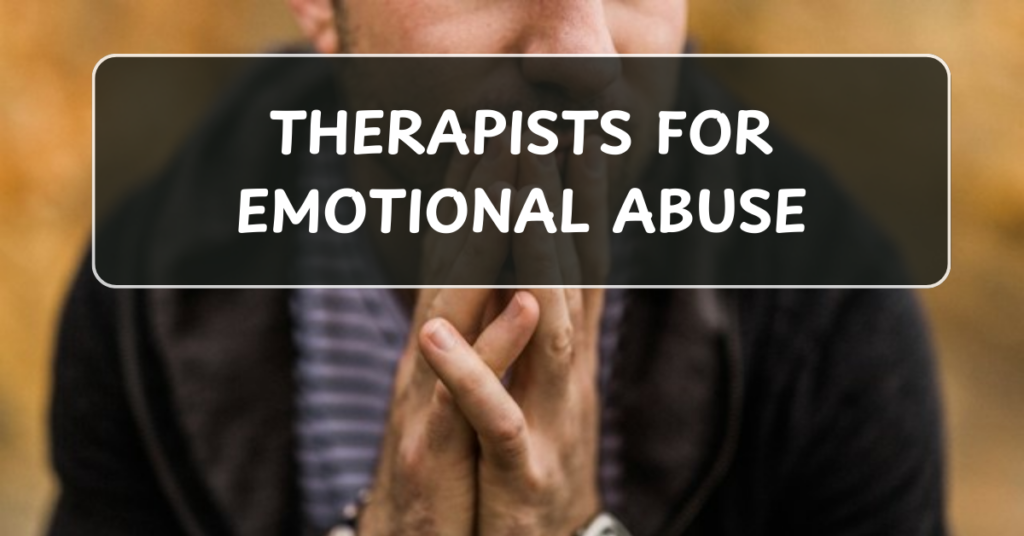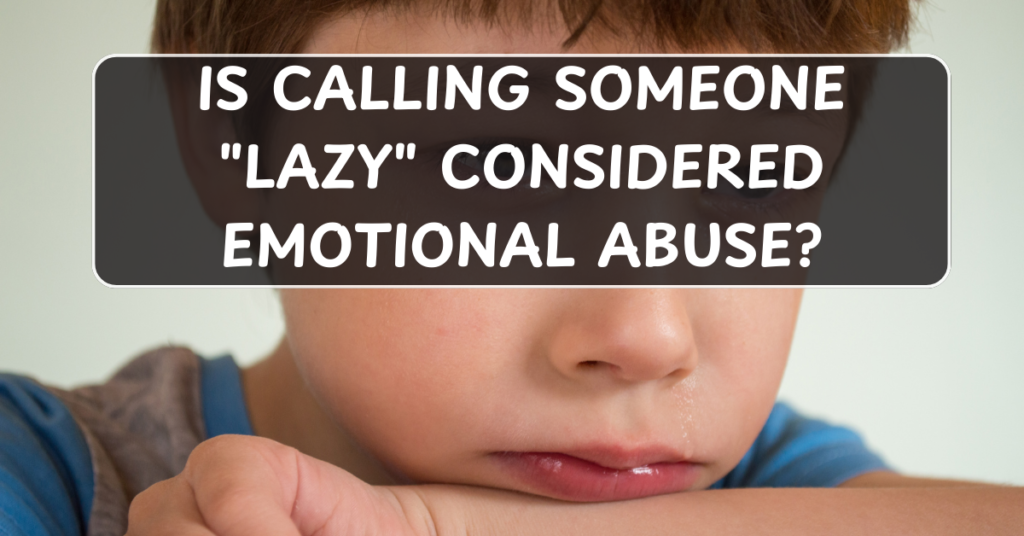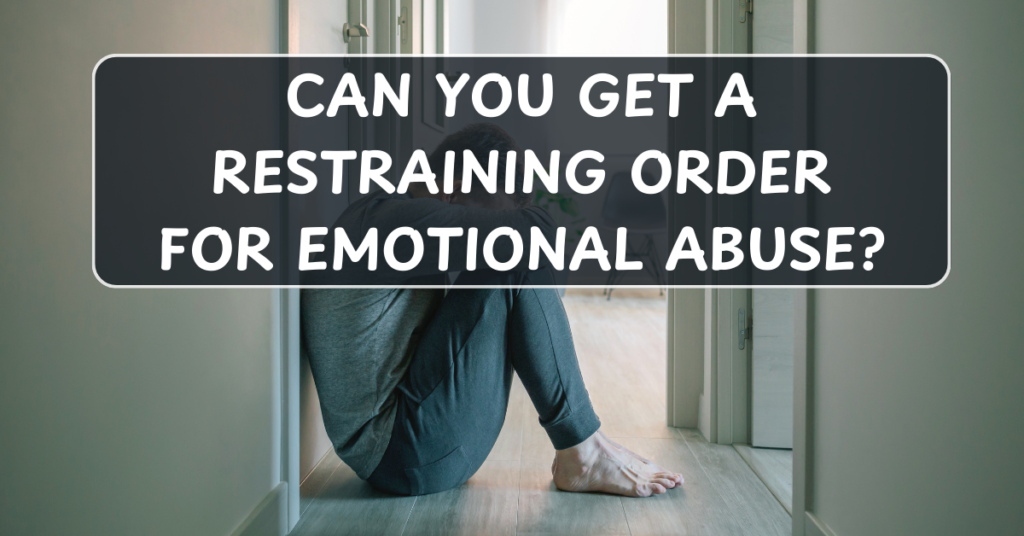
Emotional abuse can have long-lasting effects on an individual’s mental and emotional health. Unlike physical abuse, emotional abuse often goes unnoticed, but its consequences can be just as severe, leading to depression, anxiety, low self-esteem, and difficulty trusting others. If you or someone you know has experienced emotional abuse, finding the right therapist can be a crucial step in healing and reclaiming a sense of self-worth. In this article, we’ll explore how therapists can support emotional abuse survivors and provide tips on how to find the right professional to help you on your healing journey.
1. Understanding Emotional Abuse and Its Impact
- What is Emotional Abuse?: Emotional abuse refers to a pattern of behavior intended to control, manipulate, or belittle another person. This form of abuse can include verbal insults, humiliation, gaslighting, intimidation, and constant criticism.
- Psychological Effects: Survivors of emotional abuse often struggle with feelings of worthlessness, fear, shame, and confusion. Emotional abuse can also lead to mental health issues such as anxiety, depression, and PTSD.
- The Need for Therapy: Therapy provides a safe, supportive space for survivors to process their experiences, gain a better understanding of the emotional effects of abuse, and develop healthy coping mechanisms.
2. How Therapists Can Help Emotional Abuse Survivors
- Validating the Survivor’s Experience: One of the first ways therapy helps is by providing validation. Survivors of emotional abuse may feel as though their experiences are minimized or denied, especially by the abuser. A therapist can help survivors acknowledge and validate their pain.
- Building Self-Esteem: Emotional abuse often leads to a loss of self-worth. Therapy helps individuals rebuild their self-esteem by teaching self-compassion, reinforcing their strengths, and helping them rediscover their sense of identity outside the abuse.
- Learning to Set Boundaries: Emotional abuse often involves manipulation and control. Therapy can help survivors learn to set healthy boundaries in relationships, regain their autonomy, and stop the cycle of abuse.
- Managing Emotional Responses: Survivors may experience intense emotions like fear, anger, or sadness. Therapists help individuals develop healthy coping strategies for managing these emotions, reducing the impact of triggers, and finding ways to heal.
- Rebuilding Trust: Therapy can be vital for rebuilding trust in oneself and others. After emotional abuse, many survivors find it difficult to trust again. A therapist can guide the survivor in restoring trust through therapeutic exercises, trust-building activities, and creating a sense of safety.
3. Types of Therapies for Emotional Abuse Survivors
- Cognitive Behavioral Therapy (CBT): CBT is highly effective for survivors of emotional abuse. It helps individuals identify negative thought patterns formed by the abuse and replace them with healthier, more constructive thoughts. CBT also helps with managing anxiety, depression, and PTSD, all of which are common in emotional abuse survivors.
- Trauma-Focused Cognitive Behavioral Therapy (TF-CBT): TF-CBT is a specialized form of CBT designed for trauma survivors. It helps individuals process trauma, reduce distressing memories, and change negative thoughts related to their experiences of abuse.
- Dialectical Behavior Therapy (DBT): DBT helps individuals regulate their emotions, cope with stress, and navigate difficult relationships. This therapy is particularly useful for survivors who struggle with emotional regulation or self-destructive behaviors as a result of emotional abuse.
- Eye Movement Desensitization and Reprocessing (EMDR): EMDR is a powerful therapy for trauma survivors. It helps individuals process traumatic memories and reduces the emotional intensity associated with those memories, which is especially helpful for survivors of emotional abuse who are dealing with distressing flashbacks or intrusive thoughts.
- Psychodynamic Therapy: This type of therapy explores the unconscious patterns that may have been established during the abusive relationship. It helps individuals understand how these patterns influence their current relationships and offers insight into ways to break free from unhealthy dynamics.
4. What to Look for in a Therapist for Emotional Abuse
- Experience with Trauma: It’s important to find a therapist with experience working with survivors of emotional abuse and trauma. They should be knowledgeable about the effects of abuse and have the expertise to help you process your experiences in a supportive way.
- Empathy and Understanding: A therapist should be compassionate, empathetic, and nonjudgmental. Emotional abuse survivors need a therapist who can create a safe space where they can speak openly and honestly about their experiences.
- Specialization in Abuse: Look for a therapist who specializes in working with abuse survivors. They should be familiar with trauma-informed care and know how to support you through the healing process.
- Comfort and Trust: A strong therapeutic relationship is essential. It’s important that you feel comfortable and trust your therapist. The right therapist will listen to you, validate your feelings, and guide you in your healing journey.
- Gender and Cultural Sensitivity: Some survivors may feel more comfortable with a therapist of a particular gender or background. It’s essential to find a therapist who respects your preferences and is culturally sensitive to your needs and experiences.
5. Finding the Right Therapist for Emotional Abuse
- Referrals from Support Groups: Support groups for abuse survivors can be a great resource for finding therapists who specialize in emotional abuse. Members of these groups can often recommend trusted professionals who have helped them on their journey.
- Online Therapy Directories: Websites like Psychology Today, TherapyDen, and GoodTherapy offer therapist directories where you can filter therapists by specialties, such as emotional abuse or trauma. You can also check the therapist’s credentials and read reviews from other clients.
- Ask for a Consultation: Before committing to a therapist, many professionals offer free consultations or initial sessions. Use this opportunity to ask questions about their approach, experience, and to determine if you feel comfortable working with them.
- Therapists Who Offer Online Therapy: If you have difficulty finding a therapist in your area or prefer to receive therapy from the comfort of your own home, consider online therapy platforms like BetterHelp or Talkspace, which connect you with licensed therapists specializing in emotional abuse.
6. Conclusion: Seeking Help for Healing
Emotional abuse can have profound effects on a person’s mental and emotional well-being, but with the right therapy, healing is possible. Therapists can help abuse survivors rebuild their lives, regain their self-worth, and learn healthy coping strategies. If you or someone you know is dealing with the effects of emotional abuse, reaching out to a therapist is an essential step toward recovery. By finding a compassionate and experienced therapist, you can begin to heal and take back control of your life. Remember, you deserve support, validation, and a future free from abuse.


